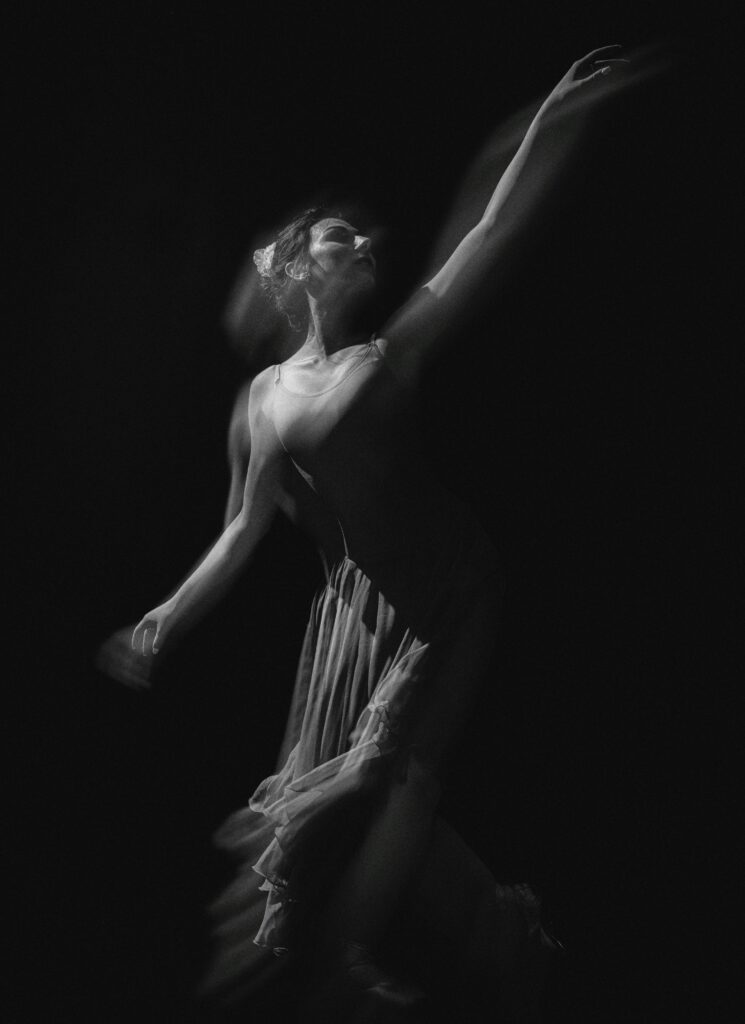The Forgotten Forest
Ceridwen Lee, December 24, 2023
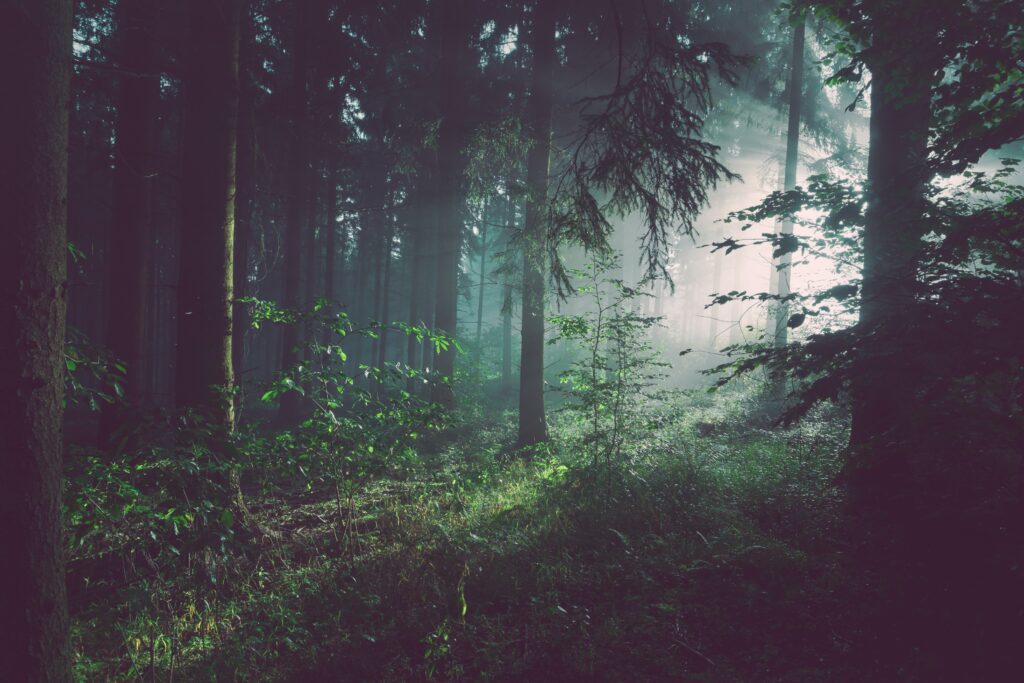
‘All the world is made of faith, and trust, and pixie dust…’ (Peter Pan) and what if all the fairytales were true?
Hertfordshire, March 2023
I am woken early by a white sunrise which creeps around the curtains in my bedroom under the eaves. It sneaks with tentative fingers across the blankets on my bed. Flickers shadows of disappearing constellations around the cracks in the ceiling. Get up, get up. The day is a-running.
‘Never waste a sunrise’, my grandmother used to say, “not even, and most especially, on a rainy day. For you can trace the patterns of other worlds in the sunrise. Hear the things that want to be heard. And, if you’re quick and quiet, you might just catch the ancestors whispering. You’ve got all day for sleeping, sleepy head.’
On those days, we would wake to the scent of hot chocolate on the stove. She would wrap us up in coats, snug as a bug, and stomp into her boots. We went with her out into the Hertfordshire dawn, into the trees in the half-light under a bruised sky, with the sound of raindrops a pitter patter on our hoods.
‘Ssh, can you hear them? They’re telling their secrets. Listen.’
My grandmother was like that, before the dementia took her and left a changeling in her place. She was strange and fierce, with a story for every occasion. Stories about moonlight and magic and rain. To us, she was a marvel, with the scent of apples tangled in her hair, the moon in her eyes, and a ‘storm always brewing along her edges’ (Winterwood).
Their house stands on the edge of a forest, ‘under three large oak trees, nut trees just below’; just like in Red Riding Hood (Grimm’s Fairy Tales, 1909). I can see their branches tip-tapping in the wind from the attic window. The back door opens onto the garden, which opens onto a wasteland of brambles and thorns, and through which one can push their way into the forest if they’re both persistent and careful. I skirt the willow on the lawn, dripping black and white buds from its spidery arms, and knock twice on its trunk to banish bad luck. Spring is slow to arrive this year. It’s March, but still quite cold and grey. Snowdrops, shy heads lowered, pepper the ground. The green stalks of daffodils dance around them, not yet blooming. Not yet, but soon, is the promise of Spring.
The house is quiet and still behind me, with not even the twitch of a curtain. My grandparents won’t be up for hours. The bustle of cleaners and carers begins at nine. I tiptoe, tiptoe, nonetheless. No sense risking it. When I returned home last year, my grandmother was already lost in her own private world, which none of us could enter. My life in bags, another failure, and childhood long behind me. The shell of my grandmother to greet me, and the smell of sickness which invaded every corner of the house. But the forest was still there, unchanged. Come, it seemed to say, trees too can bend and break.
This is my forest. The place where, as a child, I played at weddings beneath bramble arches and pirates in the stream. Where I learned to climb trees and, on wild nights, chased storms through the branches. It sang to me then of fae and goblins and will-o’-the-wisp. Gave me stories by which to shape myself. For human beings are creatures of fable, myth, and magic – and it’s only once we grow up that we sometimes forget to remember. Forget the forests which made us. And yet, it did not entirely leave me (the best stories never do). The forest waited patiently for my return. And so it was that, once upon a mizzling Spring morning, I set out to walk its boundaries.
The rain is a miserable drizzle falling in a silvery curtain from a blushing pink sky. It is the kind of rain which somehow gets inside the neck of your coat and makes you shiver.
‘Forget them all. Come with me where you’ll never, never have to worry about grown up things again…’ (Peter Pan)
On the other side of the wasteland, trees stretch for five miles over undulating green hills. The forest has no name. Once it did: in the 15th century, Queen Elizabeth’s cartographer named it Bakhmfted Parva; in the 18th century it belonged to the Baker family, who called it a Pinetum, and whose fortunes rose and fell with their plantations. Now, it belongs to no-one. And, over time, as it was chopped up for assart, dissected for parts, even its name was forgotten. Yet still, it persists. On the trail maps it is marked, for no reason anyone can explain, as ‘Granny Walkers’.
I walk with no fixed destination, following a dirt track through the trees and up the hill with my boots slap, slapping on the sticky, clay earth. Bolts of light illuminate the ground in shafts and sparrows sing the sun in. Dried leaves, bleached by Winter and disturbed from their slumber by my passage, spray up behind my feet. They leave a sparkle in the air, like clippings of old photographs, as they drift back down and scent the air with forest humus. It gets under your skin, that smell, and leaves you feeling restless. As if something good might happen at any moment. I turn left at the heap of stumps, left to rot and waste and feed the forest, where we pick mushrooms in the Autumn: chestnut brown, round boletes; ox tongue fungus that climbs the trees; and dimpled penny bun.
At the mushroom stumps, I take the lefthand fork in the path which leads through the fields. With the brown murmur of the forest on the horizon, always on my right-hand side, I stumble through the long grass. My bumbling progress disturbs a flock of birds. Tiny, black and white wagtails, they flutter, hover, in a susurration of feathers. For a moment, I am surrounded by the sound of beating wings. It’s a turf war, this field: rooks and crows share the side by the fence, wagtails and sparrows in the middle, and gulls wherever they can find a space. The magpies I’ve grown so fond of are waiting for me by the crab apple trees in the hedgerow, flirting with their white patches. I like to think they come to see me each day. That, somehow, I’ve become as familiar to them as they are to me.
On I go, towards the very centre of the field, where a long, oval hummock lies like a line across a page. It is helpfully marked with a sign for the Hertfordshire Way, and never ploughed nor mown. The farmer, if you were to ask, would tell you that he would no more take his plough to a graveyard. Folklore looms large in the country and this, so they say, is the final resting place of nameless Saxon warriors. I prop my back against the post. Slide down to rest. Close my eyes. The birds are a faraway chorus here. The whole world smells earthy, fresh from the rain. If you listen closely, you can just imagine the drum of long-ago-gone horses’ hooves between the pit-pat-pit-pat drops. Can almost hear the echo of jeers and hooting calls in the hob holes which pockmark the barrow. Catch a whiff of smoke from the fire where they burned them. The clink and rasp of shovels as they cut through earth and stone to bury them. Beware, my friends, for my forest harbours ghosts.
I cannot tarry. The trees are calling. ‘Second to the right… and then straight on till morning’ (Peter Pan), I follow the last quarter mile of track and back into the darkness of the forest. Immediately, as the trees close around me, the path drops away. It happens sharply, all of a sudden. I skid to a halt, breathless, with the toes of my boots hanging over the edge of a precipice. Below, a wide, bowl-like hollow opens up, punctuated by tall, green pines. It’s so quiet, so still. There is not a skitter in the undergrowth. Not even the tick of a bird. But that silence is deceiving for, all of a sudden, as I’m catching my breath, a flash of brown and white bursts through the trees. Little legs pound, thump-thump, on the claggy earth. A muntjac deer. It turns its face turned towards me for a second, white striped and horned like Bacchus, and then it’s gone. Chase me, chase me.
I follow, picking my way through clouds of white cowslip, honey-scented, while overhead the blackbirds bicker. Pine turns to birch, and then split ash.
‘Birch to sweep away the spirits of the year’, my grandmother always said, ‘And ash to cure what’s broken.’
I loop around, through the trees, to the stream where elms felled by early storms now lie across the banks like bridges. Stepping with care, a tightrope walker on a wire, I start to cross them. Carefully, carefully. One step, then another. My boots skid on wet wood. I catch my breath. Wobbling. Arms stretched wide for balance. Far beneath me, eroded earthen banks and silvery water beckons. I hear the echo of our childish laughter in its playful trickle. See the mirage of my grandmother in her red coat, dark curls escaping, as she bends to release a paper boat. I fancy I could almost catch a glimpse of her face as she turns away.
I jump down on the other side, where the path climbs steeply upwards. In the distance, a road rumbles through the countryside. They say that a black Gytresh haunts the opposite ridge, watching the path. So, if you should see a flash of black fur, hear the whoop-whoop cough of his bark, don’t look too closely. But he isn’t there today. On I go, upwards, upwards, into the avenue of oaks. Ancient and hoary, their roots form steps to climb the steep banks. Their trunks are cracked, like a macabre display of open chests, to reveal their insides. They are wider than my arm span and agonised, ecstatic faces writhe in their gnarled skin. I lift my face to look up through their naked branches, dizzyingly tall, to a sky just starting to turn blue.
Over the next rise, the path peters out. The rest of the forest is practically unreachable on the other side of a sheer rock face, pitted with heather and moss. I am forced to scramble, digging my fingers and toes into holds, muscles straining as I climb, and heave myself over the edge. I lie there for a while, watching the kaleidoscope of the sky whirl, making pictures in blue and white, until my legs stop shaking. This side of the forest is older, darker. Oak, hornbeam, hawthorn, and pine, so thick you can barely see the light. It would be easy to get lost here, and strange things trip-trap through the undergrowth; you would be well advised not to stray too far from the path. I follow the footprints of the muntjac, which must have bounded like a goat up the rock face. Its curved hoofs leave uneven, crescent imprints in the mud. The trail is narrow, winding in and out of hawthorn hedgerows, and I hear my grandmother’s voice again, warning,
‘Do not pick their branches. Do not bring them into your home. Beware their thorns.’
I pick my way carefully until, after a mile or so, the forest begins to curve back around. If I boost myself up, just a little, I can see the roof of my house. Here, the forest opens up to form wide, leafy clearings – and this is where the spirit trees linger.
When an oak tree dies, if the conditions are just right, it freezes. Who knows when it happens? Who knows why? They have been here for as long as I can remember. Indeed, it’s a strangely emotional thing to stand in the midst of these petrified souls with their arms raised, like hands holding hands, into corkscrew twists, and trunks smoothed by the elements into flowing, water-like wood. It’s practically silent, as if even the creatures of the wood are afraid to disturb the dead. At sunrise, it’s the very definition of the mystical and interstitial: you are among the not quite living, yet not wholly dead; under a sky which folds into velvet from shades of mauve and rose, neither day nor night. It is in these moments that possibilities overlap.
Somewhere, lately, in the unfairness of being a grown up with all its attendant cruelties, the magic slipped away from me. Perhaps this is why we walk: in search of our forgotten magic.
‘In time they could not even fly after their hats. Want of practice, they called it; but what it really meant was that they no longer believed’.
I chased it all over, at sunset and sunrise, and into the forest. I called its name but received no answer. Instead, I was left with this empty vacuum. A grey space where nothing but cynicism lived. The weight of anxiety, fear, and change, stripping out all joy. I had no faith to hold on to. No stories. So, this is what it feels like to be them, I thought. The ones who forgot.
‘All children, except one, grow up…’ (Peter Pan)
Yet, the magic is still there: in my grandmother’s wisdom and stories, in the ghosts of my forest. Tantalisingly close. So close that, if I poke out my tongue and let the sky fold around me, I think I can almost taste it. If I hold out my hand to the wind, I might just catch its tail.
I stand for a while, lost in the moment, until (like a polite tap on the shoulder, a cough behind you in the queue), a lek-lek call echoes from the trees. A capercaille dashes out, four-foot tall, all ruffled brown feathers and orange throat. He is whistling, clicking, to attract his mate.
‘Little John and Robin Hood, walking through the forest’, I think.
An answering rasp from above signals a receptive target, but he scarpers at the sight of me, huh-huh-ing in alarm, and is away into the undergrowth. A robin sails down then and lands on the closest branch. He regards me with beady, black eyes, and curious head to one side.
‘Time to go. Time to go. Time marches on’, he whistles.
He’s right of course. But then, robins usually are. And, as I turn for home, I finally catch a glimpse of my muntjac – the one I’d been chasing. His strange yellow eyes watch, wary, from the bushes – quite as if he’d been there all along.
You may also like

Eyes of the Beholden
Unspoken desires linger in the shadows of a teacher's life, revealed through art
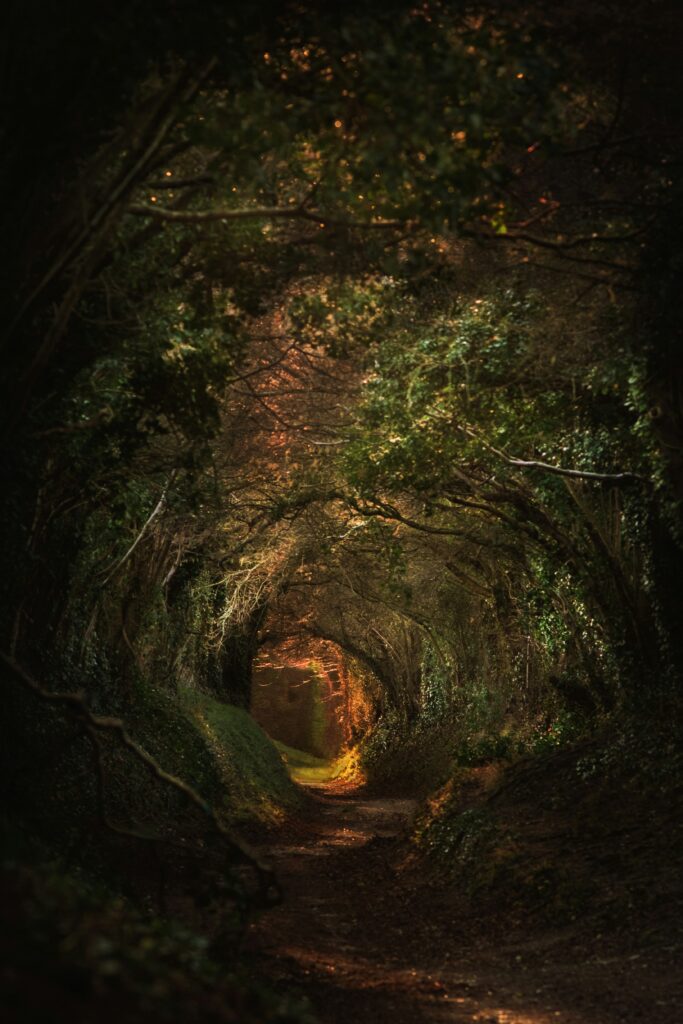
LOST
Bessie's odyssey through stormy nights, lost love, and secret graveyards unfolds with haunting beauty in "Lost" by Sandra Dennis.

Water Rising
Amidst a flood, a woman grapples with the past, and confronts the consequences in this haunting narrative of resilience.
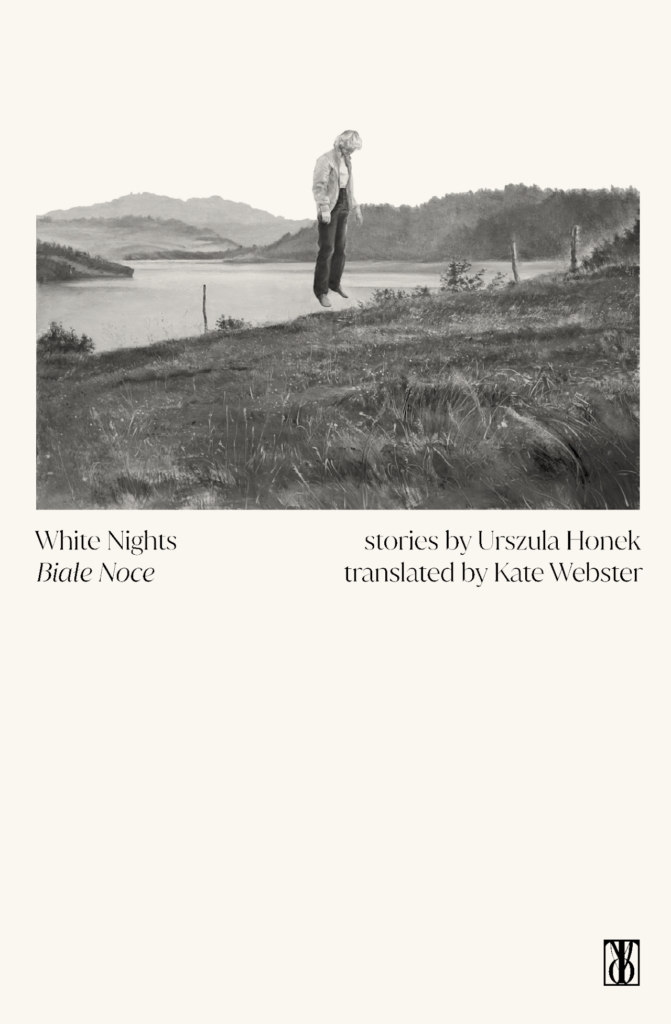
Book Review: White Nights by Urszula Honek
The debut short story from Polish writer Urszula Honek, White Nights, is akin to reading an account of a haunted place – one that is beautiful and devastating in equal
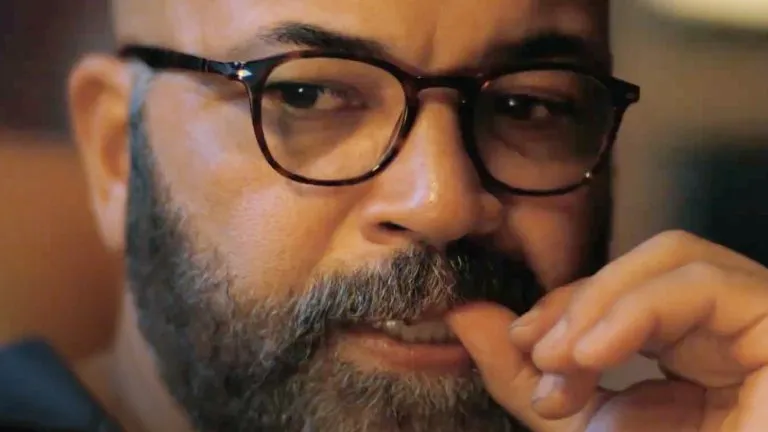
Beyond the Surface: The Multifaceted Lives of ‘American Fiction’
In essence, "American Fiction" and the experiences it draws from remind us that we are indeed more than the sum of our parts.
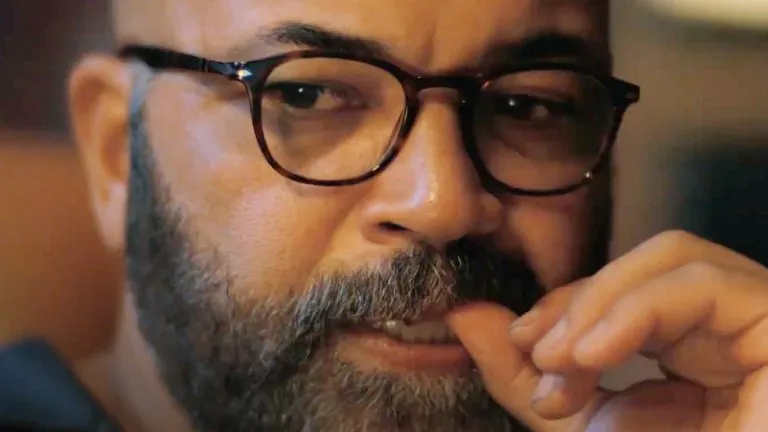
Beyond the Surface: The Multifaceted Lives of ‘American Fiction’
The narrative of “American Fiction” unfolds with a dual focus: it not only scrutinizes the unique pressures faced by Black creatives but also delves into the intricate and sometimes tense…
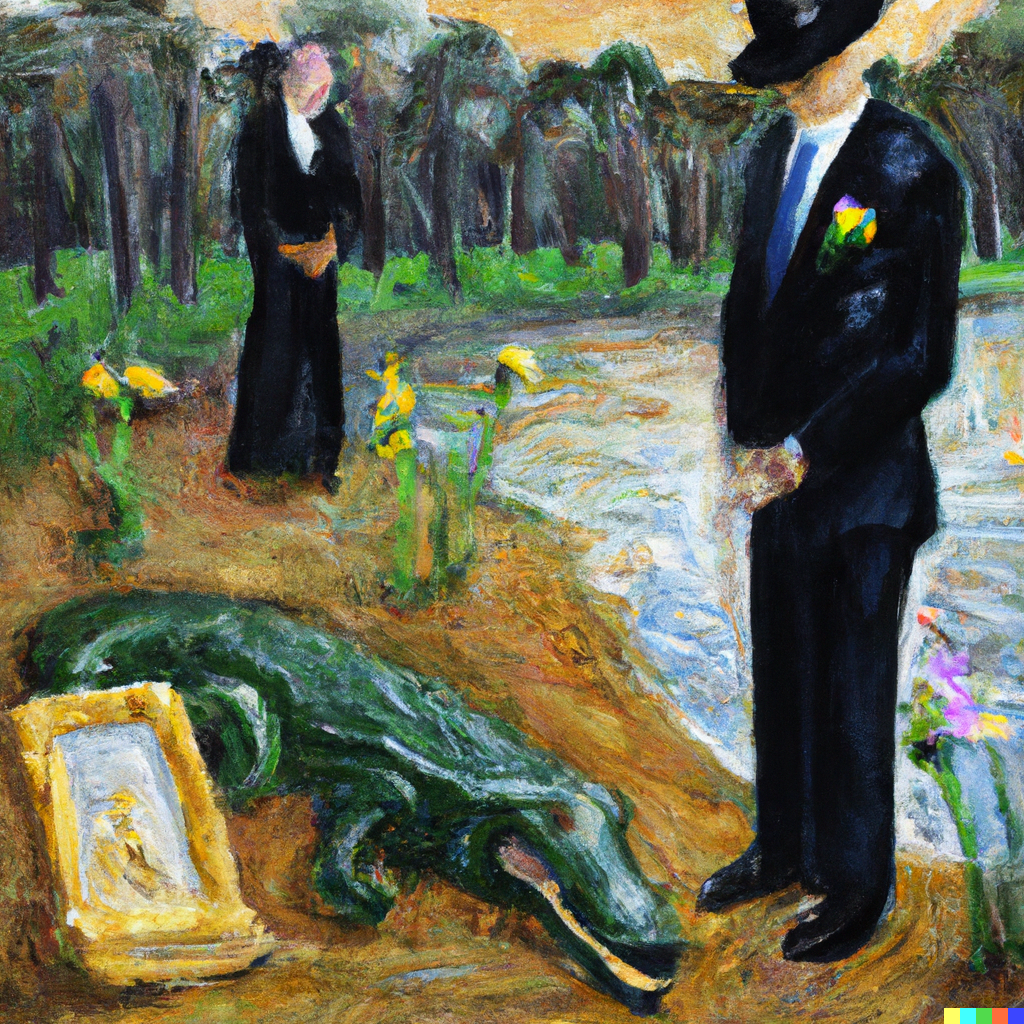
Uncle Bobby’s Funeral
Reluctant family faces the eccentricities of Uncle Bobby's funeral in swampy Chipley.






